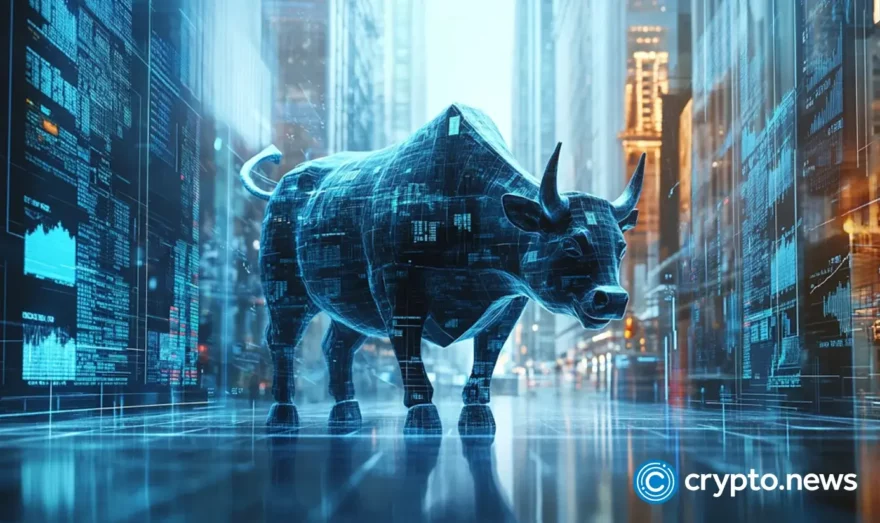Evergrande сrypto сrash: Chinese giant’s impact on digital markets

China’s Evergrande’s bankruptcy filing reverberates in the crypto markets, triggering significant drops in major digital assets and casting a shadow over Tether’s financial backing.
Once the leading property developer in China, Evergrande has recently transformed into a prominent representation of China’s property crisis.
On Aug. 17, Evergrande sought refuge from debtors by filing for Chapter 15 protection under the US bankruptcy code. This provision assists non-US companies in shielding themselves during restructuring, keeping creditors at bay.
Evergrande’s affiliate, Tianji Holdings, followed suit in Manhattan bankruptcy court. This development underscores the mounting anxiety that China’s property sector may bleed into other areas of the economy, especially as growth falters.
Evergrande’s liabilities, an astronomical sum of $330 billion, and a late 2021 default have catalyzed a chain reaction.
Companies responsible for 40% of Chinese home sales have defaulted since the debt crisis emerged in mid-2021. The situation has left a grim landscape filled with thousands of unfinished homes and rattled investors.
Evergrande is not just folding its cards. Restructuring talks are underway in Hong Kong, the Cayman Islands, and the British Virgin Islands. Creditors may soon vote on a restructuring plan, with potential approval by Hong Kong and British Virgin Islands courts in early September.
Crypto market’s reaction
News of Evergrande’s bankruptcy filing sent shockwaves through the crypto market. Bitcoin (BTC), leading the charge, crashed by 7% in the last 24-hours minutes and even dipped below $26,000, trading at $26,500 as of August 18.
Some also blame Bitcoin’s sudden drop on a viral post, alleging that Elon Musk’s SpaceX sold its entire $373 million Bitcoin stash.
Meanwhile, Ethereum (ETH) followed suit, declining by nearly 6% and trading at $1,695 as of this writing.
The crash wasn’t confined to Bitcoin and Ethereum alone. Ripple (XRP) declined by 14%, Litecoin (LTC) plummeted by 13%, and Shiba Inu (SHIB) declined by 8%, over a single day.
Moreover, Bitcoin’s recent surge due to institutional interest seems to have been halted, with SEC’s slow approach to approve a Bitcoin ETF dampening enthusiasm.
Tether’s exposure to Chinese debt
Tether (USDT), one of the most prominent stablecoins in the cryptocurrency market, has been caught in the shadow of the Evergrande crisis. The complexity of Tether’s asset backing and the potential exposure to the Chinese financial system make it a focal point of interest and concern.
Tether’s backing traditionally consisted of reserves in fiat currencies like the US Dollar. However, the composition shifted over time to include other assets like commercial paper.
In mid-2021, a report highlighted that nearly 50% of Tether’s backing came from commercial paper, short-term unsecured promissory notes issued by corporations.
While Tether quickly assured the market that it had no direct exposure to Evergrande’s debt, the precise details of the commercial paper in Tether’s reserves remain undisclosed.
Concerns arise because commercial paper issued by Chinese corporations could still form part of Tether’s reserves, indirectly linking Tether to China’s broader economic situation.
Evergrande’s default and the broader uncertainty in the Chinese real estate and corporate sectors could impact the value and stability of commercial paper from other Chinese entities. If Tether holds a significant portion of such paper, it could lead to questions about the stablecoin’s valuation and stability.
What to expect next?
Evergrande’s restructuring and the knock-on effects on various sectors call for a cautious approach. Investors, regulators, and market participants must navigate the uncertainty with diligence, foresight, and readiness for abrupt changes.
The shock from Evergrande’s situation is a vivid reminder of the fragility and interconnectedness of global financial markets. The crypto world should brace for further volatility, as traditional financial woes can cascade into digital asset price swings.
Expect heightened scrutiny on Tether and similar stablecoins as analysts and regulators dissect their exposure to global market events and adherence to financial standards. The Evergrande saga could be a catalyst for more rigid oversight.















